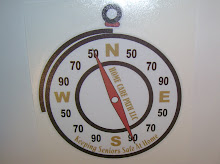The likelihood of suffering from sleep distrubance increases with age. Many seniors experience disrupted sleep. Seniors experience nighttime or early morning awakening. The most common sleep disruption is insomnia. Insomnia is characterized by trouble falling asleep or repeated awakenings during the night. Hyperinsomnia the senior is groggy upon rising and feels weary and exhausted all day. Hyperinsomnia is seen as excessive sleepiness. Nocturnal myoclonus is involuntary leg movements that cause awakening at night. Narcolepsy causes overpowering attacks of sleepiness. During narcolepsy a senior may lose all control over there voluntary muscle, as if zoning out. Sleep apnea (stop breathing period when asleep) looks like loud night time snoring and daytime drowsiness. Tips for supporting a good nights sleep include:
Limit caffeine, alcohol and tobacco use
Get up the same early hour each day, avoid over sleeping
Cut out naps
Keep regular meal times
Have a regular, predictable evening routine
Reduce fluid intake prior to bedtime
Lose some weight
If sleep disruption continues to interfere with daytime routines contact your primary Doctor for a referral to a sleep specialist. The sleep specialist (a medical doctor) will conduct a comprehensive diagnositc evaluation. You may be asked to keep a sleep chart. You would document and record sleep distrubances, the time and food, fluid consumed, stressors etc.
Tuesday, July 20, 2010
Subscribe to:
Post Comments (Atom)

No comments:
Post a Comment